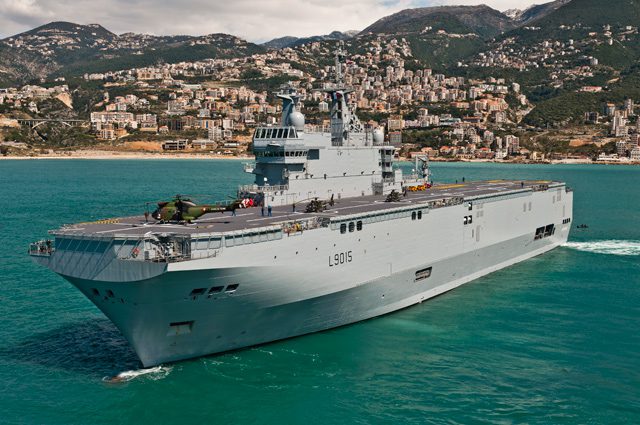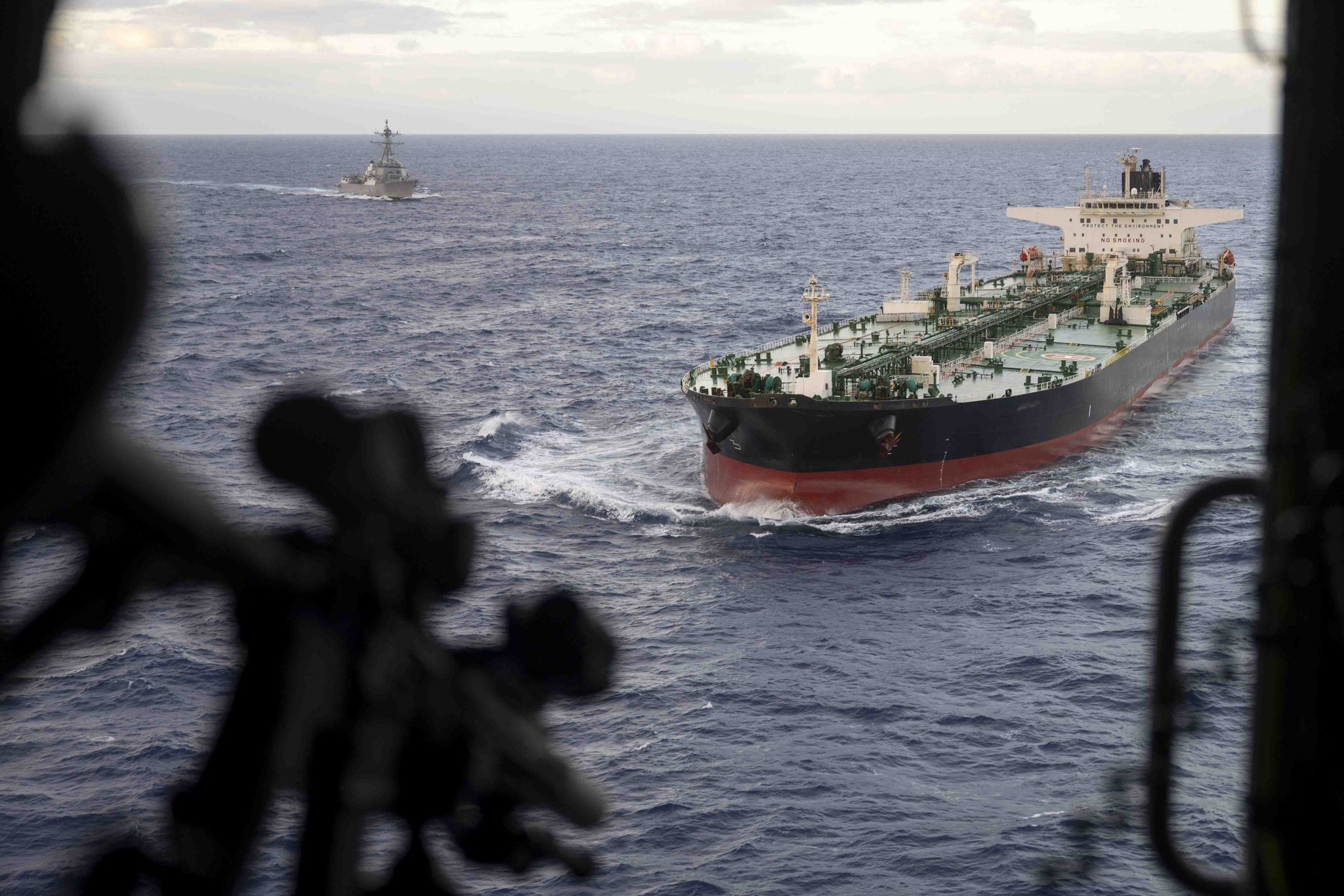The Mistral-class BPC Dixmude (L9015) in Jounieh bay, Lebanon 2012. via Simon Ghesquiere/Marine Nationale
 By Leigh Thomas
By Leigh Thomas
PARIS, Sept 3 (Reuters) – France will not deliver the first of two helicopter carriers to Russia for now because of Moscow’s actions in eastern Ukraine, the French president’s office said on Wednesday.
France, due to join NATO partners at a summit in Britain from Thursday, has faced fierce pressure from Washington and other allies to halt the sale of the Mistral-class warships, the first of which had been due for delivery in October.
Four hundred Russian sailors have been training to operate the carrier since the end of June in shipyards at Saint-Nazaire, on France’s Atlantic coast.
Warning Moscow that it could face more sanctions, President Francois Hollande said last week it would be “intolerable and unacceptable” if it were proven that Russian forces had entered Ukrainian territory, something Russia denies.
“Russia’s recent actions run against the foundations of security in Europe,” said a statement issued by Hollande’s office after a meeting between the president and his top military advisers.
“The president of the republic has concluded that despite the prospect of ceasefire, which has yet to be confirmed and put in place, the conditions under which France could authorise the delivery of the first helicopter carrier are not in place.”
Russian President Vladimir Putin outlined a plan for a ceasefire in eastern Ukraine on Wednesday, but the Ukrainian prime minister accused him of trying to deceive NATO ahead of the summit to head off new European Union sanctions.
Following the presidency’s statement, Foreign Minister Laurent Fabius was careful not to close the door entirely to the possibility of France delivering the warship.
“The decision that the president had to take was: Are the conditions there today for the delivery. No, but we hope that they will be in the future,” Fabius said on BFMTV.
NO “TRAGEDY”
Russia’s Defence Ministry played down the French decision, saying it would not hinder the modernisation of its military nor hold back its reform plans, Itar-Tass news agency reported.
“Although of course it is unpleasant and adds to certain tensions in relations with our French partners, the cancelling of this contract will not be a tragedy for our modernisation (of the army),” Deputy Defence Minister Yuri Borisov told the Russian news agency.
Its decision to hold off delivery is likely to take the heat off France when NATO leaders meet in Wales for a summit focused largely on the conflict in Ukraine and growing tensions with Russia.
“Unfortunately, Russia has made this kind of decision the only possible decision by its actions,” a senior NATO official told reporters in Newport, northeast of the Welsh capital Cardiff, before the summit.
France has until now resisted allies’ pressure to halt delivery of the warships, saying that doing so would hurt Paris more than Moscow.
In Washington, U.S. State Department spokeswoman Jen Psaki welcomed France’s decision, saying at a daily briefing: “We do think that was a wise decision.”
As recently as July, Hollande said France would honour the contract for the first carrier, but that he was prepared to review the second due to be delivered in 2016.
And on Tuesday, French diplomats had suggested that delivery of the first helicopter carrier was likely to go ahead.
Paris has repeatedly said other countries must share the burden in imposing a new round of sanctions on Russia and that any measures should also include the energy and financial sectors as well as defence.
Signed by then-president Nicolas Sarkozy’s conservative government, the 1.2 billion euro ($1.58 billion) contract for two warships was the first by a NATO member country to supply Russia with military equipment.
“Russia used to have a closer partnership with NATO than other countries through the NATO-Russia Council,” one high-ranking NATO diplomat said in Newport. “But this Russia today is no partner.” (U.S. $1 = 0.7609 euro) (Additional reporting by Julien Ponthus in Paris, Adrian Croft and Sabine Sebold in Newport and Alissa de Carbonnel in Moscow; editing by Angus MacSwan and Gunna Dickson)
(c) 2014 Thomson Reuters, All Rights Reserved
Editorial Standards · Corrections · About gCaptain
This article contains reporting from Reuters, published under license.

 Join The Club
Join The Club











